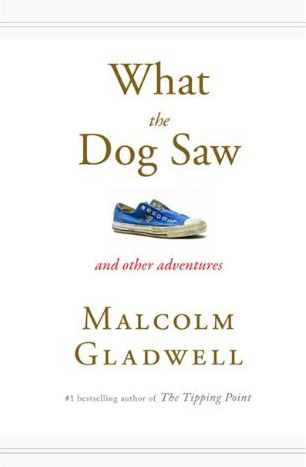
NOTE FROM KATHRYNDo you like playing video games? I like to play the odd game, but do not consider myself an addict by a long shot. Recently I’ve found a substitute that offers a payoff. You might be thinking of online poker, but I’m referring to brain training. By nature, young children seem to learn something new everyday. They are alert, curious, and have questioning minds. As we age, it is important to make sure that we exercise our brains in a variety of ways. To this end, I began exploring a number of brain training sites online. In as little as 15 minutes a day, you can improve your mood, your memory, and your creativity among other things. If you feel like exploring, here are a few sites that I checked out. There’s no need to subscribe. Each contains free exercises. Have fun. I know I did. |
Breaking Away From Wander and SquanderDo you feel that you are trying hard, but not accomplishing what really matters? Over the past week, I’ve noticed small details signaling that something is about to fall through the cracks. I put my wallet in my gym bag so I wouldn’t have to carry my bulky purse. Two hours later I went to put gas in my car and discovered my wallet wasn’t in my purse. After a moment of panic, I remembered where it was. Sometimes our work is like this. We try to do more with less and end up delivering less value with more stress. After two or three similar incidents happened to me in rapid succession, it occurred to me that I should pay more attention to what I am doing and focus on the activities that yield the greatest result for a given effort. One thing is certain. We all have the same number of minutes available to us each day. It’s the small decisions we make about how we spend those minutes that add up to the results we get. Without priorities, we can expend tremendous effort without creating tangible results. Sound like a chicken running around with its head cut off? Have you taken some of those minutes to figure out what’s important to you? Do you know what matters to your organization? If you don’t know the answers to those questions, you’ll wander (lack direction) and squander (your time). To make the most of each day, put systems in place to establish and review your personal and professional goals. Write your goals down and keep them in your line of sight. Visible goals tend to get accomplished. Beyond that, prioritize your daily activities with your goals in mind. Try thinking about your work differently. Place each activity into one of the four categories below. Do it Now! Diminish! Delegate! Delete or at least Delay! You get to choose how you spend your minutes. Instead of being overwhelmed, figure out what really matters and go do it! |
KATHRYN'S TIPSOnce you have established your goals, think about some activities you can incorporate into your daily life that will support you in attaining each goal. Here’s a personal and professional example. Personal Goal: To eat in a more healthy way Professional Goal: To be more proactive in my networking efforts I was on the elliptical machine at the Y, when the Jamaican man on the machine next to me smiled and said, "It's better to shine in use, than to rust undrawn." Apparently, it was his grandmother's favourite saying. I like it and so it becomes my tweet of the month. |
|
Communi-Kate is a free, monthly newsletter on improving bottom line results through better management of projects, programs, and portfolios. Back issues can be downloaded for free at http://www.pottruffconsulting.com. Kathryn Pottruff is a senior business executive and President of Pottruff Consulting Inc. Working with individuals and organizations, we drive profitability by improving how projects, programs, and portfolios are managed. We work with our clients to establish processes, systems and tools that deliver value and build competitive advantage. In short, we transform paralyzing complexity into dramatic results! _______________________________________________ |

|
